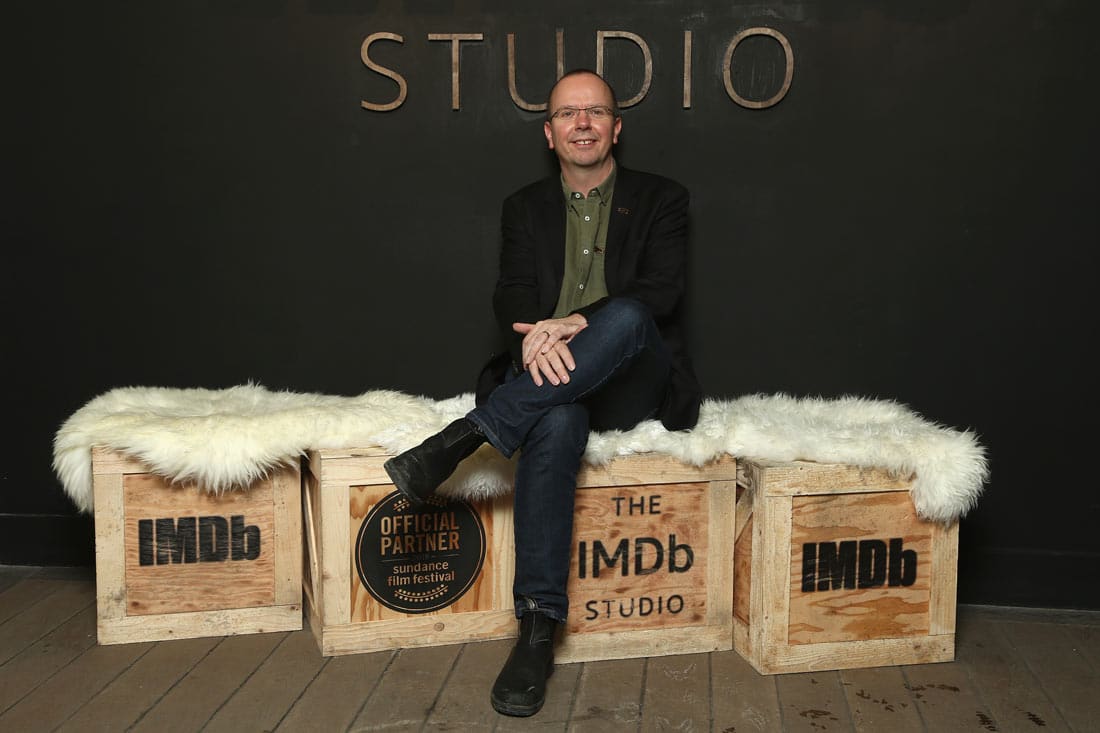Without even looking it up, Col Neeham knows that Nicole Kidman was born in Honolulu in 1967.
That’s what 50 years as an obsessive film fan with an attention to detail and an engineering degree will get you: an almost encyclopedic knowledge of the entertainment industry, right at the apex of the internet supernova.
But Needham’s story about the 35-year-old IMDb is so much better than just right time, right place. It started with a deep dive into the world of movies, just out of the goodness of his heart—and then out of the goodness of the hearts of others around the world.
That’s what separates his story from so many others who were lured into the Internet startup era by the coveted idea of generational wealth. That did come for Needham, eventually, but it wasn’t his guiding force. His was just a love of movies.
“I’m a lifelong film fan,” Needham says. “My first experience in a cinema was when I won a coloring competition when I was five, and the prize was two tickets to go see Snow White and the Seven Dwarfs.” What came next was Jaws, Star Wars and then so many others that he says those films of the 1970s formed him as a person.
Two things were starting to happen at once for Needham: his thirst for film was insatiable, and his interest in home computing was ignited.
The origins of IMDb
“By 1981, the origins of IMDb came from a very practical problem, which was this: I was seeing so many movies that I could no longer keep track of what I’d seen and what I hadn’t seen,” he says. ”Back then, the classic film-geek thing to do was to get a paper diary and write down what I saw on what day.”
Unlike other cinema zealots, Needham was paying close attention to the credits—all of them. “The 14-year-old me didn’t know what a cinematographer or an editor did, but I would notice patterns in the credits,“ he says. “I’d see that this editor often works with this director, or this producer seems to produce films by this writer. But my paper diary only had enough space to write the title down.”
His solution? A database.
That genesis gave him ample room to create a living record of everything he’d seen. “Ridiculously geeky,” he acknowledges, “but that kind of worked out all right in the end.”
From there, his story is standard-issue ’80s internet success: Dial-up modems led to message boards that allowed him to interact with other film lovers who wanted to add to Needham’s database, all on a strictly volunteer basis.
“I would always say yes, because if there was somebody willing to give up their time to manage that data, then it was worth adding,“ he says. “Then, in 1993, I got an email from a Ph.D. computer science student at Cardiff University in Wales. He said he’d installed the database software and thought it was really cool, but he asked if I’d heard of this World Wide Web thing? [He said,] ‘I think it might be quite big, and we could have a website interface to the database.’”
That student was Rob Hartill, who did exactly what he’d volunteered to do. Within two weeks, IMDb.com was up and running.
From a passion project to a business
As soon as the site’s blockbuster growth became palpable, Needham and his volunteers had decisions to make. “We could either say, ’We can’t do this anymore because it’s consuming all our spare time,’ or we could incorporate as a business, sell some advertising, and one or two of us could work part-time,” he recalls.
They had the website traffic to warrant that kind of leap of faith, but as with any non-e-commerce sites, there wasn’t revenue correlating with that traffic—yet.

“In 1996, we incorporated as a U.K. company, and we figured out a formula to divide the shares in the newly formed company according to how long you’d been involved and how much work you were doing,“ Needham says. “We bought our first web server on a credit card, and we launched IMDb.com in time for the Oscars in 1996.
“After we signed our first advertiser—DEC, Digital Equipment Corporation—we paid off the credit card within the interest-free four-week period,” he explains of the brand’s first burst of revenue. “Thus, IMDb.com became the world’s first profitable Internet company.”
The revenue run rate continued to expand, allowing Needham to leave his day job at Hewlett-Packard and cover additional salaries as time went on. “I would call up the next volunteer shareholder and say, ‘We can afford to pay you now. Quit your job,’” he says. “None of us had really ever met, you know? By and large, we’d all done this all by email.”
Leveling up
As Needham continued to convert volunteers into employees, the brand-new online retailer Amazon.com was watching his every move. In 1997, Amazon founder Jeff Bezos requested a meeting with him, and Needham assumed it was just about Amazon’s advertising on IMDb. But during that London meeting, Bezos explained how Amazon was going from selling books to music and then VHS tapes and DVDs.
“He painted such a clear picture of how IMDb could operate within the Amazon group of companies. Amazon had never acquired anybody at this time,” he says. “It was such a compelling vision. So on the 24th of April, 1998, IMDb became a wholly owned subsidiary of Amazon.com. It was a massive investment in the future of IMDb.”
Amazon promised Needham that they’d be as hands-off as possible in order to avoid disrupting the magic that IMDb had created. As a result, Needham had permission to keep doing what came naturally to him. “There’s nothing written down to that effect,” he says, “just a verbal agreement between us, 27 years ago.”
Needham’s key to success
Needham credits his relentless customer obsession as essential to his success. That’s what guides him still, all these years later. That, and saying yes to those volunteers in the early days.
“What we need to do is listen to what customers want from IMDb. And the great thing about the Internet is that there’s no shortage of people telling you how you should do your job,” he laughs. “Every complaint is an opportunity to solve another problem for a customer.
“When things aren’t quite going as planned,“ he adds, “you just apply that engineering mindset, which is, ‘Well, that didn’t work. Now, we’ve learned how to not do that. Let’s see what learnings we can take from that and try again.’”
Needham knows that this mindset is what allowed him to be so fortunate with the career path that he chose—or, in some ways, the one that chose him. “It’s a tremendous honor to be part of the industry that I remain a fan of,” he says, “but [that] I’m now in myself.”
This article originally appeared in the May/June issue of SUCCESS® magazine. Photo by Tommaso Boddi/Getty Images for IMDb







